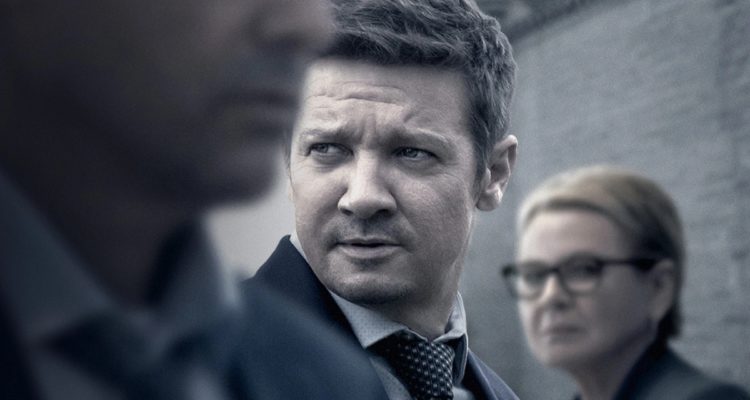Taylor Sheridan makes films and shows about hyper-masculine dudes. Projects like “Wind River” and “Yellowstone” exist in an old-fashioned atmosphere in which every man has a firearm on his belt, a woman who has betrayed him, and a grievance in his heart. It has led to some criticisms of toxic masculinity and even misogyny, and the creator leans hard into these accusations with the new Paramount+ series “Mayor of Kingstown.”
The first two episodes screened for press (both written by Sheridan) portray a violent, aggressive corner of the country in which there are no marked exits for anybody. It’s a show about the system that presents an entire community turned into a prison, whether people are behind bars or not. Reviewing it is a tough case wherein it feels like a show that’s finding its potential after the first two long chapters, but these two are undeniably rocky in terms of storytelling and character depth. It’s not hard to believe that Sheridan and company are just loudly clearing their throats before developing “Mayor of Kingstown” into something richer, but the jury is out as to whether or not they have anything to say.
The title of “Mayor of Kingstown” refers to Mitch McLusky (Kyle Chandler), a power broker in Kingstown, Michigan, one of those American communities that has become defined by its prison system. The truth is that putting people behind bars is an industry in this country, and there are places like Kingstown that have networks of prisons, although most of the drama of this show takes place outside of the cells. Like so many shows about macho men, it’s more about the people in control than the people being controlled. Mitch manipulates prisoners, guards, cops, officials, gangsters—the entire system—often by creating bridges between them. Why? That’s one of the great unanswered questions of the premiere of “Mayor of Kingstown” in that it’s hard to see where the profits come for the McLuskys. It almost feels like an obligation, like mobsters forced into a family business that they neither enjoy nor really profit from. It’s a miserable life, and it centers an often-miserable show.
Mitch has a brother who seems even more cynical and dour, Mike (Jeremy Renner). Allowed to play on the fringe a bit more than the Mayor, he’s sort of a liaison, talking to guards and gang leaders to orchestrate deals. For example, when a letter gets a guard into trouble in the premiere, Mike goes to the local gang leader (a charismatic Tobi Bamfeta) to try and negotiate a deal to get him off the hook. Mitch pulls the strings from his office; Mike does the dirty work on the streets. However, action in the premiere will force Mike into a more prominent role, one that he’s not sure he wants or is really capable of performing.
Chandler and Renner are predictably charismatic, but they struggle a bit with Sheridan’s clunky, over-written dialogue in the premiere. It also doesn’t help that the narrative seems uncertain in the manner in which it introduces an extended ensemble, much of which is then discarded for other players in the second chapter. Too many of the characters in the premiere feel like a caricature, and the script lacks rhythm and feels unconfident about its premise and direction. It really feels like a pilot was produced to get funding and then everyone started over again in chapter two, which was written by Sheridan but directed by co-creator (and regular collaborator) Ben Richardson and is notably better.
In the first episode, a stripper goes to the McCluskys with an order from famous gangster Milo Sunter (played by the great Aidan Gillen in Episode 2, who could do some heavy lifting on his own to give this show some heat in future episodes)—go get some buried money and bring it to her. This conversation really sets in motion the arc of the show but it’s disconcerting how much Sheridan lingers over her naked body during an extended lap dance scene in that it raises the question of the difference between setting a project in a misogynous world that’s filled with violence against women and placing that kind of dude-bro behavior on a pedestal. In “Mayor of Kingstown,” it feels like he falters too often into the latter category. After all, there are only two female characters in the premiere—a stripper and the estranged mother of the McLuskys, played by Dianne Wiest, a great actress who seems lost so far in this world.
The dividing line of “Mayor of Kingstown” will be if audiences feel like Sheridan and Richardson are deconstructing masculinity or just leaning into their strongest critics. By the time that Mike is having a truly emotional moment with an actual bear, “Mayor of Kingstown” is a small rewrite away from parody—the story of macho men who can only commune with nature instead of other people. And here’s where only being sent two episodes for a review makes for a tricky prospect. Could “Mayor of Kingstown” become the story of a man who is torn down to his frame after being thrust into a responsibility that he never asks for, showcasing his weaknesses and the flaws of his macho bullshit? Of course. But it’s not that yet. For now, it seems too content to wallow in a world of awful people doing awful things. And these first two episodes erect walls of toxicity from which the rest of the season could have a tough time escaping. [C]
“Mayor of Kingstown” premieres on Paramount+ on November 14.

